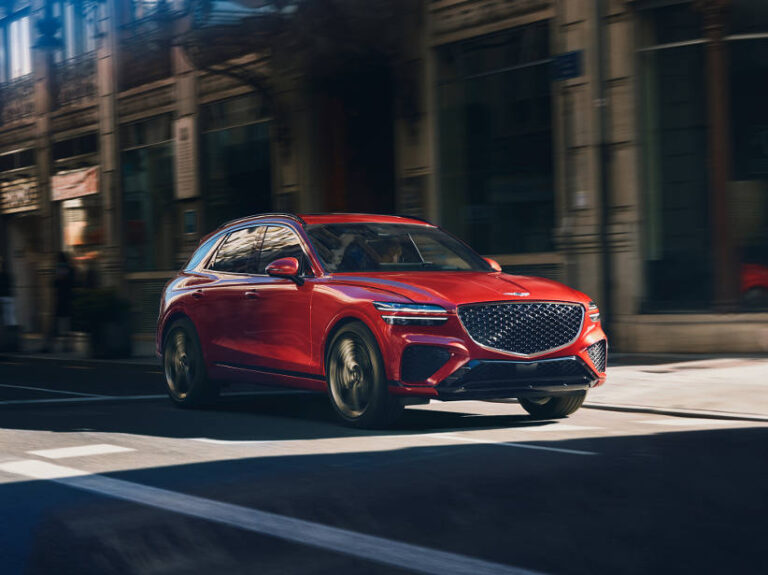The safety of the People Mover and Medium SUV segments for fleet buyers has been bolstered, with ANCAP, Australasia’s independent voice on vehicle safety, announcing 5 star safety ratings for the Volkswagen Caddy people mover, BMW iX, and Genesis GV70, all tested against the latest 2020-2022 rating criteria.
The seven seat Volkswagen Caddy people mover, introduced in Australia and New Zealand earlier this year, scored well across all areas of assessment, achieving good results in the lane support system (LSS) performance, and most autonomous emergency braking (AEB) car-to-car tests. This rating applies only to the Caddy people mover variants, with the Caddy Cargo van currently unrated.
The Volkswagen Caddy people mover is fitted with a comprehensive range of safety features and technologies, including a centre airbag designed to provide added protection to front seat occupants in side impact crashes, and AEB junction assist, where the vehicle can autonomously brake to avoid crashes when turning across the path of an oncoming vehicle.
“The purpose of People Movers is to transport a large number of passengers in a family or business setting, so it’s very pleasing to see the safety and design of vehicles in this segment improving,” said ANCAP Chief Executive Officer, Carla Hoorweg.
“Volkswagen has made notable safety improvements in the new generation Caddy people mover, compared to the previous model, and should be congratulated for achieving this 5 star ANCAP safety rating.”
In the Medium SUV segment, the electric BMW iX also scored highly across the range of occupant protection and collision avoidance assessment areas. The iX achieved good results in the side impact test and more severe oblique pole test, and in the AEB car-to-car and vulnerable road user scenarios, with collisions avoided or mitigated in almost all scenarios across a range of speeds. The iX did however present a higher risk to the occupants of an oncoming vehicle in the frontal offset (MPDB) test, and the maximum penalty was applied.
The iX also performed well in the far side impact tests, with full points awarded for the prevention of excursion (movement towards the other side of the vehicle) in both the vehicle-to-vehicle and vehicle-to-pole scenarios. In the assessment of Child Occupant Protection, the BMW iX scored full points in both the MPDB and side impact tests.
“ANCAP has now rated 19 fully-electric vehicles, and the BMW iX is the second fully-electric vehicle in the Medium SUV segment to be tested under ANCAP’s 2020-2022 protocols, our most stringent criteria to date.”
“BMW have again placed safety as a high priority in their vehicle design and specifications, and the iX results show BMW aren’t willing to compromise on safety for an alternative-powered vehicle.”
The BMW iX and Genesis GV70 are both fitted with an active bonnet, designed to lift the bonnet to provide greater clearance from stiff components in the engine bay if a pedestrian is struck. However, protection offered by both vehicles to the pelvis of a pedestrian was poor.
The Genesis GV70, which launched in the Australia earlier this year, scored highly, particularly in the assessment areas of Adult Occupant Protection and Safety Assist. All collisions were avoided or mitigated in the AEB car-to-car and Vulnerable Road User scenarios, including AEB junction assist.
The Genesis GV70 features a wide range of safety technology fitted as standard, including a centre airbag, and a fatigue detection system, which monitors steering inputs for patterns which are characteristic of a fatigued or inattentive driver.
In tests of the GV70’s Lane Support System, which can reduce head-on and single-vehicle crashes, adequate and good performance was shown across the range of lane keep assist and more critical emergency lane keeping scenarios.
“The Genesis GV70 offers a comprehensive range of safety features and solid results across all areas of ANCAP’s assessment.”
Full details on the safety performance of the Volkswagen Caddy, BMW iX, and Genesis GV70 can be viewed here.






